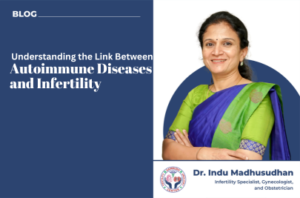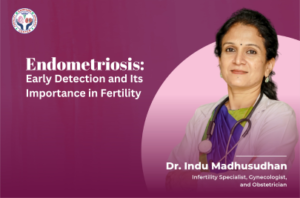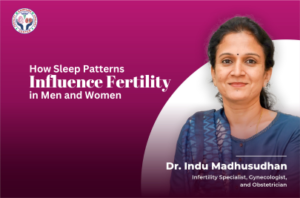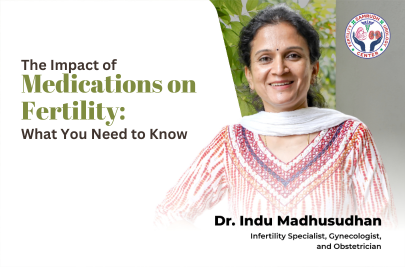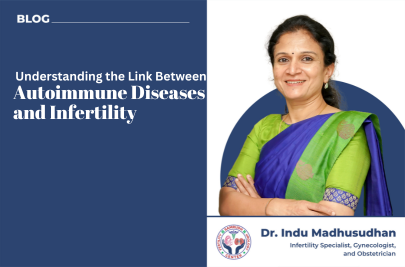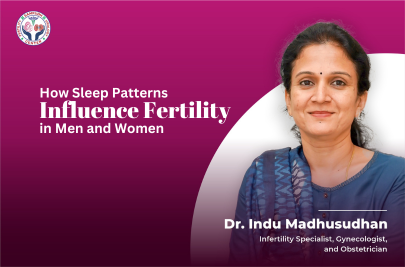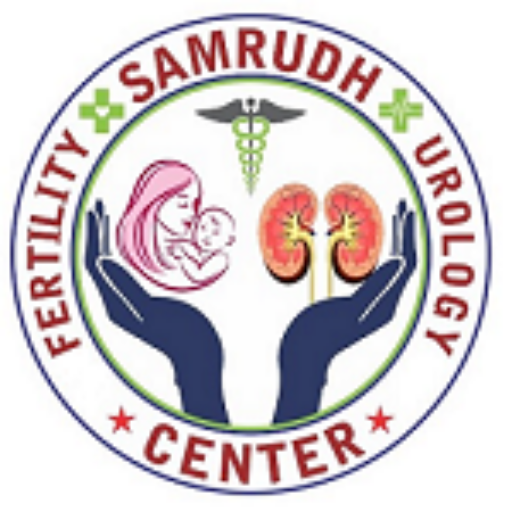Introduction:
Poor egg quality can be the reason behind several fertility problems in women, including difficulty in conceiving and the inability to have a healthy, full-term pregnancy. Even in artificial reproductive methods like IVF, the quality of eggs used plays a vital role in determining the success of the procedure.
So, what does poor egg quality mean? Read on as our fertility specialists explain the signs of bad egg quality.
Understanding Egg Quality
Egg quality refers to an egg’s morphology, genetic constitution, and ability to get fertilised before developing into an embryo. Higher-quality eggs are more likely to result in a successful pregnancy. A woman’s age during the fertility treatment greatly influences the oocyte quality, with both the quantity and quality of the eggs diminishing as you grow older.
Common Signs of Poor Egg Quality
No test can determine the quality of an egg; we can only tell how good it is after fertilisation. However, there are some common symptoms that suggest deteriorating egg quality in women. If you experience certain symptoms that may indicate signs of bad egg quality, you must consult a fertility specialist for advice.
Irregular Periods
If you are having issues ovulating, it could be a sign that you suffer from poor egg quality. Your periods will be considered irregular if they do not adhere to the usual timeframe, produce unusual flow during the period, or have not experienced your periods for several months.
Persistent Pregnancy Failures and Miscarriages
When the embryo is unable to grow and dies at an early stage during the pregnancy, it is termed a miscarriage. A high-quality egg is essential in aiding the development of an embryo and supporting the pregnancy over the entire duration. Poor-quality eggs are more susceptible to miscarriages, and with every unsuccessful pregnancy, your chance of conceiving in the future may also decreases.
You May also see You Tube Vedio : How Can I Effectively Track Ovulation to Successfully Conceive?
Conceiving Hiccups
A tell-tale sign of poor egg quality is when a woman struggles to conceive, especially if she is over 35 years old. If you and your partner have been struggling to get pregnant for over six months, it is a good idea to investigate the cause behind the failure, as, more often than not, it may be due to inferior-quality eggs.
Poor FSH Reserves
The pituitary gland produces FSH (Follicle-stimulating hormone), which influences the female reproductive system. It stimulates the production of a mature egg from the ovaries each month. Low FSH reserves in the body are often an indication that eggs are of poor quality. Poor-quality eggs have greater resistance to this hormone, so in order for mature eggs to be produced, a greater quantity of FSH is required. This increases FSH’s flow in the bloodstream while depleting reserves.
Low Levels of Estradiol
Estradiol is a common oestrogen hormone that increases during the menstrual cycle to help with the maturity and release of eggs from the ovary. This hormone also helps make the uterine lining thicker so that the fertilised eggs can be implanted better. When present in low levels, it leads to poor quantity and quality of eggs while also negatively impacting the implantation and pregnancy success rates.
Weak AMH Levels
AMH levels are said to influence the quantity of eggs produced by females. Women with a higher AMH level typically have more eggs, and vice versa.
Low Follicular Count
An ultrasound scan can determine the number of follicles in the ovaries. If the scan shows a low count, it suggests fewer eggs are likely to mature sufficiently and get fertilised. While this does not directly impact egg quality, poor reserves may reduce your chances of having enough good-quality eggs to fertilise for a successful pregnancy.
Chromosome Disorders
Typically, a poor-quality egg does not develop into an embryo, resulting in a failed pregnancy. However, if it gets fertilised successfully, it increases the likelihood of some form of chromosomal abnormality in the resultant baby. A condition known as Down’s syndrome is particularly prevalent in such situations where the baby is born with an extra chromosome, which alters the brain development, resulting in mental and physical disabilities.
What Results in Poor Quality of Eggs
To address the problem of poor quality in an IVF treatment procedure, you need to get to the root cause. Here are some major factors that adversely affect the egg quality in women.
- Age: One of the biggest determining factors when it comes to egg quality, advancing age results in declining chances of fertility, especially for women who are above 35 years of age.
- Genetics: Low egg quality may also be caused if you are genetically predisposed to it. Certain genetic conditions also lead to the production of poor-quality
- Chemical factors:A fragile hormonal equilibrium is at play in ensuring the reproductive system works properly. Irregularities or changes in the natural production cycle of hormones such as AMH and FSH negatively impact the development and maturity of the eggs in the ovary.
- Environment and lifestyle: Unhealthy habits such as obesity, excessive alcoholism and smoking, and high exposure to environmental contaminants have a detrimental effect on your egg quality.
Overcoming Poor Egg Quality Challenges
If your poor egg quality is due to your advanced age, reversing this condition is impossible. Such unwanted situations are best counteracted by starting family planning at an early age and adopting strategies such as oocyte verification before you turn 35, thereby minimising the impact of age on the quality of eggs.
However, if you are experiencing signs of bad egg quality due to other factors, you can manage them by making appropriate changes to your daily habits and lifestyle.
Struggling to Conceive? Visit the Best Fertility Clinic in Bangalore
If you are looking to experience the joy of motherhood but struggling to conceive, this may be a good time to visit Samrudh, the best fertility hospital in Bangalore. We have helped hundreds of couples overcome their issues with infertility and experience the joy of becoming parents. Get in touch with one of our expert fertility specialists today!
Read Similar Topics :


